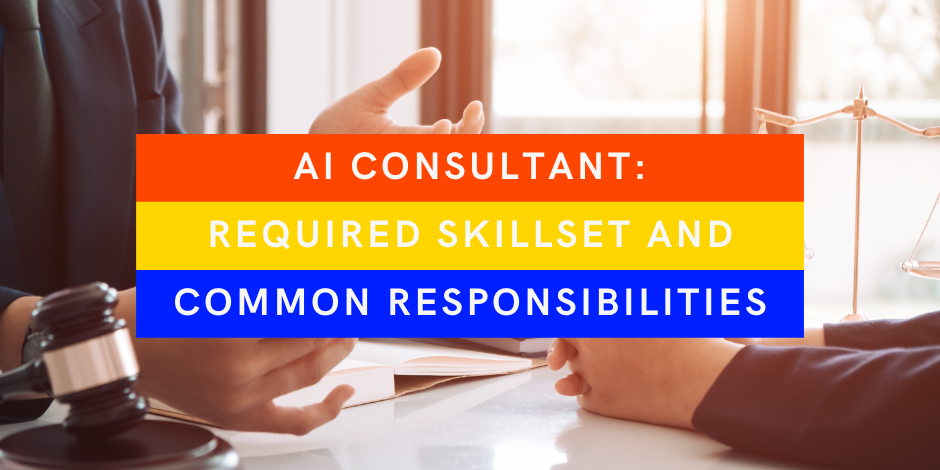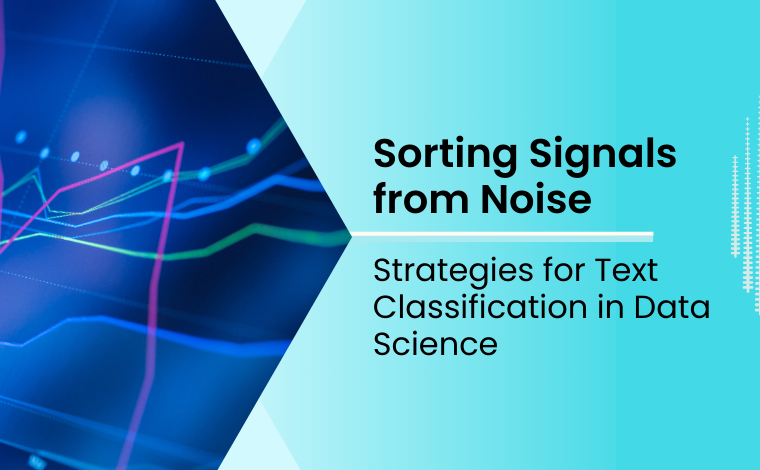AI Consultant: Required Skills and Common Responsibilities

Stay Informed With Our Weekly Newsletter
Receive crucial updates on the ever-evolving landscape of technology and innovation.
AI consultants are in charge of planning, creating, and implementing effective solutions that address several aspects of artificial intelligence usage in different business areas, including chatbots, virtual agents, deep learning, and cognitive services.
They utilize advanced machine learning tools and efficient algorithms that help the target business to function better. When a firm is looking to improve its business operation, it will need the expertise of a professional AI consultant or consulting agency that can adequately plan, integrate and implement AI solutions across the business setting.
Companies usually focus on hiring experienced individuals for this position who have excellent familiarity with AI tools and a history of providing results in varying business settings.
Why are AI consultants important?

AI business consultants employ logical algorithms and artificial intelligence to solve complex business problems. They may create predictive and prescriptive models using algorithms, predictive modeling, and optimization.
One of the critical competencies of an AI consultant is their ability to carry out a whole project from any angle of a business challenge, starting from basic data audit and recognition through model maintenance in operation.
For instance, a company’s customer service division may have a backlog when responding to client inquiries due to staff shortage. As a solution to this challenge, the AI expert may suggest implementing chatbots. These computerized systems can handle simple and uncomplicated questions so that support staff can concentrate on more sophisticated inquiries requiring human engagement.
Many businesses are keen to use AI and machine learning in unique ways to improve their prospects, which has increased the demand for AI consultant jobs and responsibilities. However, many leading figures firmly believe that artificial intelligence is still in its infancy. As a result, the industry will likely experience a staggered uptake with further development over the next ten years.
The base skills required for AI consultants

To pursue a successful career as an AI consultant, candidates must be adept in several fields, including mathematical and statistical concepts, programming, and computing. In addition, having good interpersonal and technical skills and a fundamental knowledge of ethics concerning AI development and usage is essential.
Computing expertise
These fundamental abilities—knowledge of equipment, software, operating systems, and basic programming logic—must be established in any career that uses computer technology. As an AI consultant, you must be proficient in programming languages like Java, C++, Python, and Ruby. These skills are required to construct and execute models and write algorithms that create applications and software.
Guideline awareness
It is essential to always be up to date regarding the best practices for design and development and the sustainability principles for AI. To increase trust and confidence in this developing industry, AI needs to be improved to benefit businesses, customers, and society. AI consultants must ensure they are aware of guidelines and ethics and follow them in the workplace.
Technical abilities
AI consultants must be comfortable with the modern technical tools required to develop commercial applications and artificial intelligence solutions. Creating algorithms and back-end code also requires a strong sense of logic and critical thinking.
Machine learning solutions help in solving complicated tasks that are beyond the coding capabilities of a human programmer. In artificial intelligence, neural networks have become widely recognized as the most accurate method of addressing various issues, including translation, speech recognition, and image classification.
As a candidate explores machine learning with Python or other tools like R, Tableau, and SAS and develops actual projects, they will have acquired all the core abilities needed to hold a position as an AI consultant.
Mathematical proficiency
Artificial intelligence (AI) requires a thorough understanding of statistical and mathematical notions like calculus, differential equations, linear algebra, matrices, number theory, linear and higher-order regression, logistic regression, and quantitative simulation.
It is advisable to have a solid grasp of the ideas behind vectors, matrix multiplication, and matrices. Furthermore, even simple concepts like gradient descent require understanding of derivatives, numerical methods, and their implementations.
If we consider algorithms like Gaussian Mixture Models and Hidden Markov Models, they use several statistical notions, including Mean, Standard Deviations, and Gaussian Distributions. It might seem like a lot to follow initially, but AI is a complicated field with equally complex requirements that continue to develop with every passing day.
Being a team worker
To function in a corporate setting, an artificial intelligence consulting candidate must be familiar with organizational behavior. Once you have established yourself in the workplace, it is possible to advance up the management ladder by using fundamental business skills like problem-solving, negotiation, leadership, communication, and team building.
Communication is critical in every profession, and being an AI consultant is no different. By communicating clearly and efficiently, a consultant can convey AI and ML concepts to anyone, from a senior to a layperson. The responsibilities of an AI consultant also demand collaboration on various levels.
For example, participation in projects entails collaborating with non-technical teams such as the sales or marketing divisions and the engineering team.
AI consultants in the workplace
AI consultants are the backbone of AI-based decision-making in organizations. As such, individuals in this position will be responsible for several processes, from planning an initiative and evaluating and predicting results based on data to scoping and validating the outcome.
Planning and implementing
AI consultants must remember that numerous initiatives depend on their solutions and general approach. For example, a business’s consultants may need to choose the supplier, develop solutions, decide on the method of execution, and optimize processes as part of their duties.
Consultants may perform some or all of the work like any consulting business. Alternatively, it is possible to implement it internally, which is what happens most often. However, starting with consultants might assist the customer in advancing more quickly, for instance, if the client needs more technical expertise to accomplish critical objectives.
Also, hiring consultants exclusively to handle implementation will cost more in the long term than carrying out those tasks in-house.
Comprehending and analyzing
It’s essential to comprehend the client’s strategy, the business’s potential and problems, and the advanced analytics abilities in place. An AI consultant can determine whether these systems are optimized enough to help the company grow or if they need work.
Revisions to a company’s overarching AI strategy might be required depending on the result of a consultant’s initial analysis. For instance, Business Process Outsourcing (BPO) businesses make a sizable profit by handling invoicing of other firms. However, since AI technology can support automatic invoicing, these services’ sales are in danger.
Evaluating and assessing
Since success variables in AI are distinct from those in other sectors, it is essential to have a firm understanding of the AI industry to do successful due diligence. Therefore, AI consulting firms with a proven track record in due diligence focus on developing a strong foothold in this area.
A deep-learning-based AI solution must have more or better-labeled data than its rivals to be considered superior. In addition, any program improves as developers gain insight from user behavior and implement improvements by updating the software. Unlike traditional software engineering teams, academic qualifications may be more crucial for data science teams.
As a result, businesses are spending money on AI-specific due diligence skills. These include comprehending and assessing data sources pertinent to AI models, developing quick strategies to compare the products of various AI suppliers, and being familiar with academic and professional qualifications in AI.
Understanding and scoping
A business may profit significantly by adopting AI practices; thus, having a precise aim and vision is critical. Unfortunately, in some cases, the depth of an AI project is ignored before it is implemented, leading to unsatisfactory outcomes or unrealistic time frames and budget goals. Therefore, careful preparation is necessary for the initial stage to guarantee that the goal is practical and possible.
As a result, the first responsibility of an AI consultant is to gain a complete understanding of the business problem, the data that can be used to address it, and the AI techniques and tools that offer a workable solution. After that, the consultant must define the AI requirements and the build’s time, resource, and capital requirements. Finally, AI consultants finish this process by carrying out what is sometimes called scoping.
Deploying and enhancing solutions
After the PoC has been verified using the pertinent data and software engineering, a deployable version of the solution is developed. Even if the resolution passed rigorous testing during the Proof of Concept stage, vigilance is still needed during the implementation stage since AI models and software might respond differently in a production setting than in a testing one.
They must be regularly monitored and reviewed after deployment, which will help ensure that the model operates as planned and to the required standard.
This post-deployment monitoring is important for AI solutions, just like any other software tool. Consultants can monitor their solutions through the MLOps process, which manages the ongoing lifespan of models after deployment to guarantee their consistency and dependability.
Conclusion
The procedure of being an AI consultant might look terrifyingly complex. However, with the demand this position has with the industry continuously reaching new heights, this should not be a surprise. Whether you are a student or a professional looking to upskill under the right mentors, you can begin your start in the industry by scheduling a career consultation today.




